- Home
- Thomas E. Sniegoski
The God Machine
The God Machine Read online
The intruder in the doorway was dressed in a long coat with a black cap pulled down tightly on his head. When he saw Hellboy barreling toward him, he lifted Liz Sherman like she weighed nothing and tossed her right at the cloven-hoofed BPRD operative.
Hellboy tried to be gentle, cupping Liz's body against his own to cushion the impact as he caught her and fell backward. He laid her down gently, touching her neck, searching for a pulse. She gasped for breath, the pale skin of her throat already starting to bruise.
"Pal, you better hope your health insurance is all paid up," Hellboy snarled as he rose and spun toward the intruder.
Liz's assailant was no longer alone. There were six of them now, all dressed in the same long coats and hats, standing perfectly still as they watched Hellboy advance.
"You have friends," Hellboy growled, flexing the stonelike fingers of his right hand. "Good for you."
As if responding to some cue, four of them slipped off their coats and tugged off their hats, moving in unison. Hellboy froze where he was, staring at them, trying to figure out what the hell he was seeing.
"What the...?" he managed.
They'd definitely been human once, three men and a woman. But they were long past their expiration date, the stink of death and rot coming off them in waves. They were each encased in some kind of crude exoskeleton constructed from wood and metal.
"It was a near-perfect day up till now. But zombie cyborgs..." Hellboy sighed. "I'm not sure I deserve this much fun."
Other HELLBOY titles available from Pocket Books
The Lost Army by Christopher Golden
The Bones of Giants by Christopher Golden
On Earth As It Is in Hell by Brian Hodge
Unnatural Selection by Tim Lebbon
An Original Publication of POCKET BOOKS
A Pocket Star Book published by
POCKET BOOKS, a division of Simon & Schuster, Inc.
1230 Avenue of the Americas, New York, NY 10020
This book is a work of fiction. Names, characters, places and incidents are products of the author's imagination or are used fictitiously. Any resemblance to actual events or locales or persons, living or dead, is entirely coincidental.
Copyright (c) 2006 by Mike Mignola
All rights reserved, including the right to reproduce this book or portions thereof in any form whatsoever.
For information address Pocket Books, 1230 Avenue of the Americas, New York, NY 10020
ISBN-13: 978-1-4165-4743-3
ISBN-10: 1-4165-4743-6
POCKET STAR BOOKS and colophon are registered trademarks of Simon & Schuster, Inc.
Visit us on the World Wide Web:
http://www.SimonSays.com
For Jack Kirby...The King.
Acknowledgments
As always, this book couldn't have been written without the support of my loving and beautiful wife, LeeAnne, and the unwavering loyalty of Mulder the Wonder Dog.
A very special thanks to Mike Mignola for allowing me to play with his awesome toys, and to Chris Golden for helping me to get it just right.
Thanks also to Jen Heddle, Dave Kraus, Greg Skopis, Don Kramer, Dave Carroll, Liesa Abrams, Mom and Dad Sniegoski, Mom and Dad Fogg, Eric Powell, Jon and Flo, Bob and Pat, Ken Curtis and Timothy Cole and his Graken Spriggin down at Cole's Comics.
Farewell and adieu.
Prologue
Lynn, Massachusetts, July 1891
T en-year-old Absolom was frightened, afraid that he wouldn't have enough time. But the boy stubbornly pushed his fear aside, repositioned himself upon the stool and continued to work. Time was running out.
He'd realized how close it would be the other day when he'd heard her coughing in the early hours of the morning. Coughing so furiously that it drew him from the protection of his bed and down the hall, where he'd found himself standing in the doorway of his parents' room. His mother had been sitting at the edge of the bed, his father close beside her, gently rubbing her back. She was coughing into one of her pretty lace handkerchiefs--but it wasn't pretty anymore. It was stained a deep red. Even in the early-morning gloom Absolom could see the color, bright as the beacon of a lighthouse.
Blood.
His gasp had been loud enough to catch his father's attention. There were tears on the man's face, and he became enraged, angry that his son had seen his weakness.
"Go to your room!" he had bellowed over the sounds of his wife's continued plight, and then he'd slammed the door closed in Absolom's face.
It was then that Absolom knew he had to do something--but what?
He waved away a fly that hovered above his work, remembering how he had wracked his brain that morning as he returned to his room--what could he do?
The voices of the dead had been especially loud that morning.
Boy, where am I?
Where's my baby? He was with me but a moment ago--help me find my child.
Normally Absolom would have listened to them, as he had most of his young life, but that morning had been different. He had tried to close them out. But there remained one voice--a single voice far off in the distance--that he couldn't ignore, for it claimed to have the answer to his question.
"Do you know how to make my momma well?" he had finally asked, sitting on the floor of his bedroom. And he'd waited, holding his breath, for an answer from beyond.
Now Absolom wiped a trickle of sweat from his brow before it could rain down upon his work. Time was running out; he could practically hear it ticking away. His mother had gotten sicker--weaker in the few days since he'd first heard that faraway voice.
It had told him to open his mind. And though he was afraid, Absolom had done just that. How could he not? His mother was dying.
The voice had filled his mind with a wondrous idea, and now he was racing against time to use that strange knowledge to save his mother.
Last night at supper his father had mentioned taking her into Boston, to see a doctor familiar with her condition. But Absolom knew that he was just going through the motions. The pain of loss was already etched deeply upon his father's face. There was nothing more a doctor could do for her, there was no one who could save her.
Except him.
If this works, there is a way, he thought, eyes focused upon his work, staring into the opened chest of a dead bird splayed upon the wooden worktable.
He'd killed the sparrow by drowning it, the most painless and least damaging manner of death he could conceive. Then he had taken it back to his secret place--a fort that he had built with his own two hands--and began his work in earnest.
Using his mother's sewing needles, he had pinned its wings back on a makeshift table--a plank atop an old wooden barrel that had once contained salt. Very carefully, he cut open its chest, and slowly, systematically, began replacing the small organs with the mechanics he had found inside his father's prized pocket watch. If the bird came to life when he was finished, he knew that he could fashion larger parts to replace the ones that had gone bad inside his mother.
It had to work.
He'd asked the voice for guidance as he attempted to utilize the strange information that rattled around inside his head, but the voice had been oddly silent, leaving him to his own devices.
Absolom's eyes burned as he carefully placed the tiny metal wheel inside the sparrow's gaping chest cavity. He had slept not a wink since the evening before, sneaking out to his fort soon after supper. Though he worked by lanternlight, the first rays of the morning sun began to peek through the slats of the fort, providing him with additional illumination for his chores.
Again he thought of the time and how quickly it was slipping away.
He placed the last of the springs and miniscule cogs inside the body of the bird, just
as he'd seen in the diagram in his head. But there was something missing. He could see it there, in his mind's eye, but he didn't know what it was or where he could find it.
Fingers stained with the blood of the tiny animal went to his mouth as he began to panic. They tasted of copper, but it barely registered.
"Please," he whispered to the pockets of shadow in the fort, his voice trembling. "Help me to succeed in this, and I promise shall serve you all the rest of my days."
The deafening silence continued, and he clasped his hands together, begging to be heard.
Then Absolom felt something move inside his mind, emerging like a tadpole from beneath the mud, and he was filled with a sense of power that he could not begin to understand--or survive. At that moment he knew he would die--that this strange power from somewhere beyond the realm of his understanding would fill him up so that he would be destroyed.
And just as suddenly it was gone, leaving him alone, his body tingling with but a reminder of what had just occurred, and the voice echoing inside his mind as it receded further and further away.
It is not yet time.
Absolom was filled with a nearly overpowering sense of loss. He had been close--so very close. The presence had been about to share the secret that would have helped him save his mother, and it had pulled away because he was not strong enough to know.
"Please!" he screamed aloud. "I have to know!"
Time was slipping; he could feel it with every beat of his frantic heart, and every frenzied gulp of breath. Absolom looked down at what he had done--knowing how close he'd come and realizing he was still so far away.
No, it can't be, he thought frantically, sitting back down upon his stool, determined to finish what he had started. He used a needle and thread to connect the parts inside the sparrow, and then to close up the bird's chest. Completing the last stitch, he bent over the body of the bird to break the thread with his teeth, and he caught the first whiff of it, the smell of death--of decay.
Will Mother smell like this? he wondered.
Then his guard fell, and the spirits of the dead surged forward, all clamoring to be heard. Still, he refused to listen.
He removed the needles that secured the sparrow's wings to his worktable, noticing that its body had grown stiff. He gazed down at the tiny creature, wishing it back to life.
The dead continued their cries, but Absolom remained firm, all his attention upon the body of the bird resting in his hands.
"Absolom!" called a voice that he mistakenly confused with that of the dead. The door to his shelter swung open to reveal the silhouette of his father.
The boy tossed the dead bird into the air, willing it to live--willing it to fly. But it fell to the floor at his feet, the tiny mechanics spilling through the torn stitching in its chest.
"She's gone, boy," he heard his father say, the whisperings of the dead around him confirming the mournful message. "Your mother's passed in the night."
So close, the boy thought, the scalding tears of loss beginning to fill his eyes as he stared down at his failure. It was not yet time; the voice had told him so.
But soon.
Soon.
Two Months Ago. October, 1995
Things were looking up for Stan Thomas.
The tall, gangly man took in a deep lungful of sharp November air and surveyed what he hoped would soon be his home. He smiled faintly to himself, a king surveying his fabulous kingdom.
According to the real estate agent, Elijah Attwater, the dilapidated farmhouse had stood unoccupied for nearly fifty years. The elderly agent's father had supposedly purchased the property from the city of Lynn, Massachusetts, in the early 1900s, but for some reason could never find anyone other than an occasional renter who was willing to make the house a home.
Christ, somebody even tried to burn the place down ten years ago, Stan remembered Elijah saying. There were still scorch marks visible on the side of the foundation.
The house stood at the end of an unpaved dirt road that bordered the Lynn Woods Reservation. This was the third time Stan had brought his family here. The idea of buying the old place, with all its blemishes, filled his belly with a bizarre mixture of giddy excitement and overpowering dread. He wasn't fooling himself; he knew there had to be a reason why the house had never sold, but he hoped that his skills as a jack-of-all-trades would be enough to tackle the inevitable problems.
Stanley glanced at Bethany and wondered if she was feeling the same kind of trepidation. He thought he saw tears in his wife's eyes and abruptly his uncertainty was suffocated beneath the weight of his devotion to this woman who had stuck by him through thick and thin. Stan had been through serious depression, a layoff from his job, and financial ruin, and now he and Bethany were rebuilding their lives.
She had loved this place from the start, but she deserved so much more. He vowed to himself that this ramshackle farmhouse would be just the start of the perfect life he would make for her.
"I don't even have to ask what you think," he said, as Bethany gazed at the property. They'd looked at other places in nearby Saugus and Salem, but nothing had spoken to them like this run-down farmhouse with the sagging roof.
"It's going to be one headache after another, but--"
He pulled her closer, and she laid her head on his shoulder.
"It's so beautiful, Stan," she continued, and reached up to wipe the moisture from the corners of her eyes before it could run down her ruddy cheeks.
Their seven-year-old daughter, Rebecca, came skipping around the side of the house. She bent down and picked up a stick, waving it in the air like a magic wand.
"Yeah, it is that," Stan agreed. "And it's going to be ours--if that's okay with you."
Bethany stared up at him, a momentary look of confusion on her face. "Do you mean...are you serious?"
He nodded, and she squealed in excitement, jumping up and throwing her arms and legs around him, holding on tight as she planted sloppy kisses all over his face.
"I love you," Bethany said, between frantic kisses and ecstatic laughter. "Love. Love. Love you. I really, really do."
He held her close, basking in her adulation, and made a silent promise that he would never again give her a reason not to love him. Then he kissed her passionately.
"Ewww, there they go again," he heard his daughter moan, and they both began to laugh, ending the kiss before things got out of hand.
Bethany made a move to tickle Rebecca, and the child squealed in mock terror, dropping her stick and running in the same direction her older brother had headed a few minutes earlier with the family dog.
"Be careful," Bethany called after her. "Find your brother. We have some really cool news for you guys."
Bethany returned to her husband's side, slipping her hand into the back pocket of his jeans. "I can't believe it," she cooed. "We're actually going to buy a house."
"Let's not get ahead of ourselves here," Stan replied, good-naturedly checking his hip into hers. "First our offer has to be accepted."
She threw her arms around him again. "It'll be accepted." She squeezed him tightly. "This is our dream house; we have to live here."
Stan glanced at the house, with its listing front porch and peeling red paint. "Yeah," he agreed, imagining the future--their future. "Yeah, I think you just might be right."
Bethany squealed again, jumping up and down, unable to contain her excitement, and planted another wet kiss on his cheek. Stan couldn't help but laugh.
He had discussed the price of the place with Attwater after their first visit and thought it was reasonable, but now after visits two and three, he was beginning to think it might be time for a little game of let's make a deal. The more he looked at the place, the more work he saw that needed to be done, and the more supplies he'd need to buy. Stanley Thomas saw lots of overtime in his future, and was glad that his new job for Costa Construction allowed him the option. More work than hours in the day, his foreman Greg Skopis always said, and amen to that.
<
br /> "First thing we have to do..."
"After we make an offer and it's accepted and the house belongs to us free and clear, you mean," Bethany said, and started to laugh.
"Touche," he responded, bending down to kiss the top of her head. "After all that, the first thing we have to do is slap a new roof on the place before winter hits full force."
She agreed, pointing out specific areas where the ancient tar shingles had peeled and lifted and where the roof seemed to sag in on itself.
Their daughter's voice interrupted Bethany's observation, and the two of them turned to see Rebecca running toward them through the overgrowth that bordered the property.
"What is it, honey?" Bethany called, caution in her voice. Rebecca was often a drama queen, and her excited cries could be for something as simple as the fact that she'd found a quarter, or something worthy of genuine concern, like the time she'd needed twelve stitches in her palm.
"Jack said he found something really weird and wants you to come see!" the little girl bellowed, turning to head back the way she had come. "Follow me!"
Stan and Bethany followed close behind, keeping Rebecca in their sight. "Really weird, huh?" Stan said with a chuckle.
"Wonder what he's found this time," his wife said, as they continued down the winding path tromped down in the thick underbrush.
Even for November the weeds were pretty high. Must look like a jungle at the height of summer, Stan thought.
The three of them came to a clearing where it looked as though another structure had once stood, the remains of a stone foundation still visible, but little else. Stan remembered Attwater saying something about a barn.
Up ahead, Stan could see his son squatting in the square of the stone foundation with their dog, Sadie. The Labrador-German shepherd mix barked excitedly at the sight of them, bounding in their direction, then circling back to hover around his son. Whatever it was that Jack had found was interesting enough to hold not only the fascination of a ten-year-old, but also that of a dog.

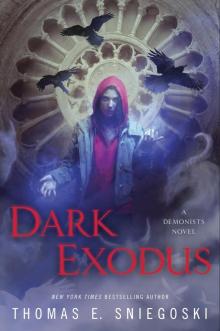 Dark Exodus
Dark Exodus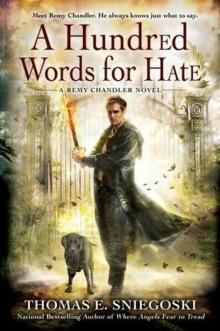 A Hundred Words for Hate rc-4
A Hundred Words for Hate rc-4 The Fallen
The Fallen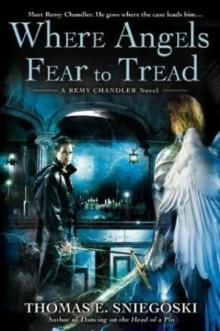 Where Angels Fear to Tread rc-3
Where Angels Fear to Tread rc-3 Armageddon
Armageddon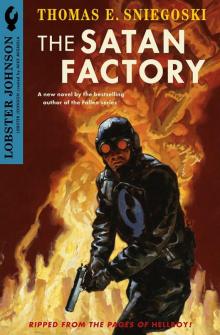 The Satan Factory
The Satan Factory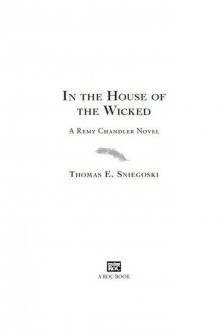 In the House of the Wicked: A Remy Chandler Novel
In the House of the Wicked: A Remy Chandler Novel A Hundred Words for Hate
A Hundred Words for Hate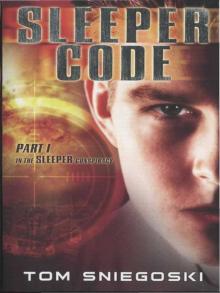 Sleeper Code
Sleeper Code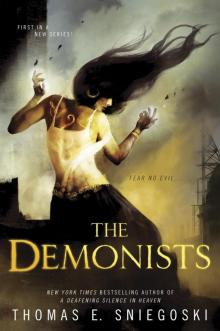 The Demonists
The Demonists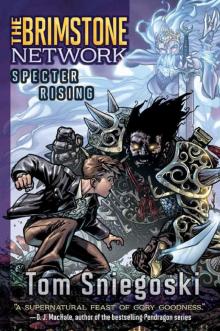 Specter Rising (Brimstone Network Trilogy)
Specter Rising (Brimstone Network Trilogy)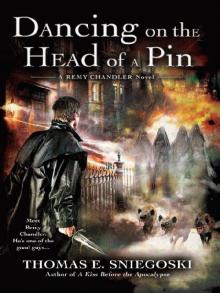 Dancing on the Head of a Pin
Dancing on the Head of a Pin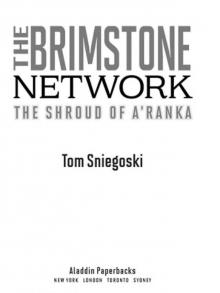 The Shroud of A'Ranka (Brimstone Network Trilogy)
The Shroud of A'Ranka (Brimstone Network Trilogy)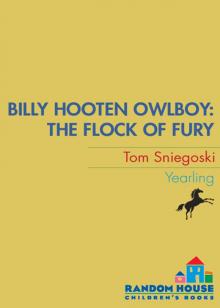 The Flock of Fury
The Flock of Fury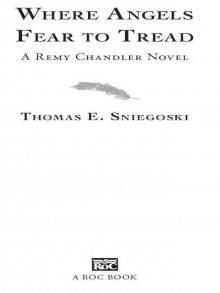 Where Angels Fear to Tread
Where Angels Fear to Tread Leviathan
Leviathan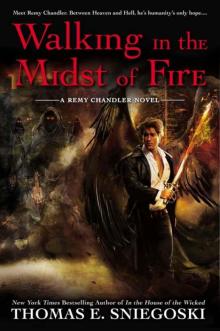 Walking In the Midst of Fire: A Remy Chandler Novel
Walking In the Midst of Fire: A Remy Chandler Novel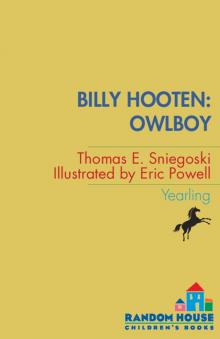 Billy Hooten
Billy Hooten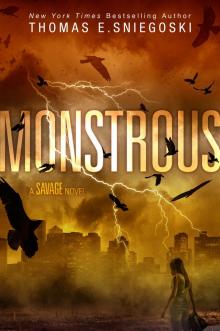 Monstrous
Monstrous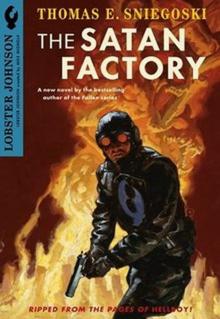 Lobster Johnson: The Satan Factory
Lobster Johnson: The Satan Factory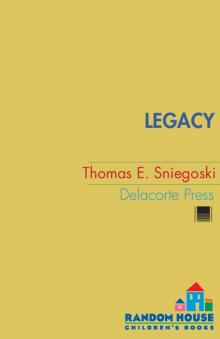 Legacy
Legacy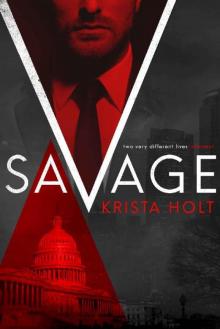 Savage
Savage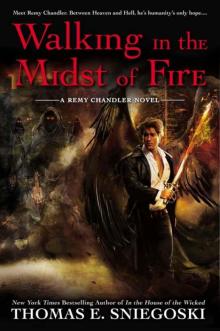 Walking In the Midst of Fire rc-6
Walking In the Midst of Fire rc-6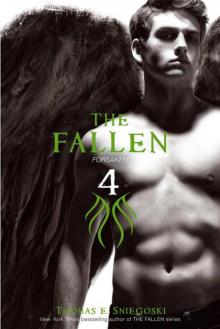 The Fallen 4
The Fallen 4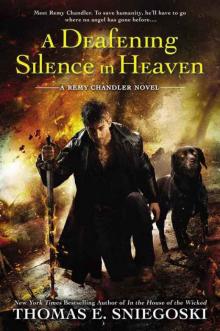 A Deafening Silence In Heaven
A Deafening Silence In Heaven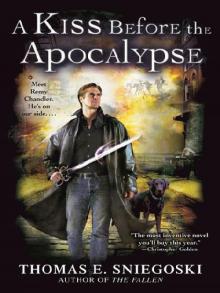 A Kiss Before the Apocalypse
A Kiss Before the Apocalypse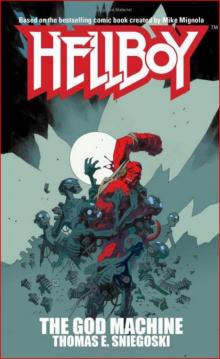 The God Machine
The God Machine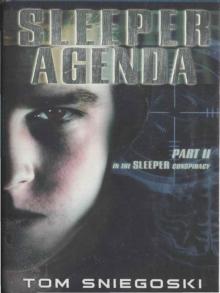 Sleeper Agenda
Sleeper Agenda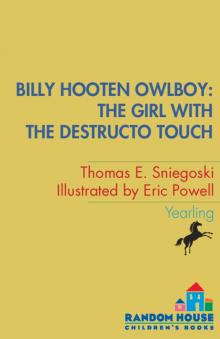 The Girl with the Destructo Touch
The Girl with the Destructo Touch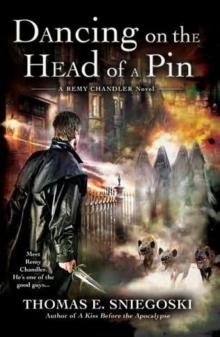 Dancing On the Head of a Pin rc-2
Dancing On the Head of a Pin rc-2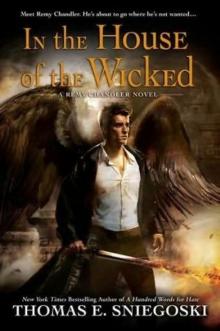 In the House of the Wicked rc-5
In the House of the Wicked rc-5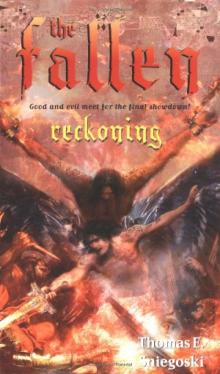 Reckoning f-4
Reckoning f-4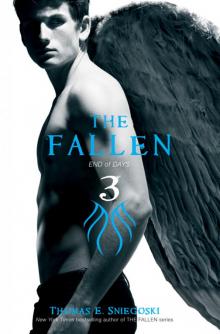 The Fallen 3
The Fallen 3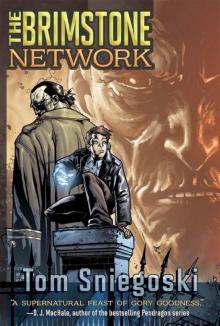 The Brimstone Network (Brimstone Network Trilogy)
The Brimstone Network (Brimstone Network Trilogy)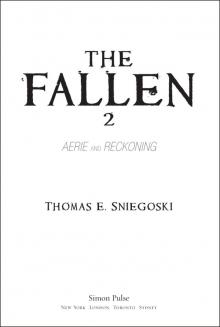 The Fallen 2
The Fallen 2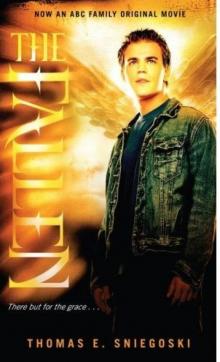 The Fallen f-1
The Fallen f-1